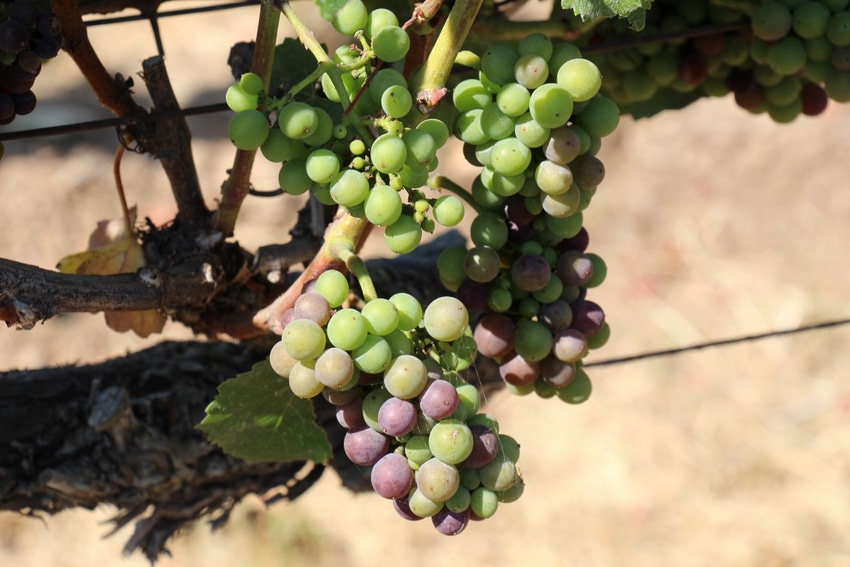
Since wine grapes are rarely consumed raw, the California Association of Winegrape Growers (CAWG) on June 15 asked the federal Food and Drug Administration (FDA) to exempt the fruit from its produce safety rule under the Food Safety Modernization Act.
If the agency agrees, wine grape growers and wineries would not have to complete “unnecessary and burdensome requirements and paperwork” under the rule.
“When FDA published its produce safety rule, the agency acknowledged that making wine from grapes effectively eliminates any risk of foodborne illness that might occur with raw grapes,” said CAWG President John Aguirre.
Wine grapes rarely consumed raw
However, Aguirre says FDA fails to include wine grapes on the list of rarely consumed commodities since the agency believes growers of Cabernet Sauvignon, Pinot Noir, Chardonnay and other varietals might sell the fruit for fresh consumption.
Aguirre made his point in a CAWG letter and 10-page white paper sent to FDA detailing the wine grape organization’s request.
According to the association, 30-plus commodities, including asparagus and potatoes, are listed as rarely consumed raw and thereby exempt from the produce safety rule. FDA says these products are nearly always cooked or otherwise processed before consumption, thereby eliminating risks of foodborne illness.
Wine grapes should be exempt
CAWG argues that wine grapes are almost always grown and sold for processing into wine – thus the fruit should be exempt from the produce safety rule.
Aguirre said, “Our letter to FDA should provide sufficient information for the agency to determine that California wine grapes are distinct from table- and raisin-type grapes and are rarely consumed raw.”
As it stands now, FDA will require wine grape growers to provide written notice with each non-processed load of wine grapes shipped, beginning with the 2018 harvest.
Destiny - fermentation tank
CAWG Director Mike Testa of Coastal Vineyard Care said, “It’s absurd to think that a Santa Barbara County wine grape grower would sell Pinot Noir or Chardonnay grapes into fresh table or raisin grape market channels.”
He noted, “All commercial wine grape production in Santa Barbara County, as in many other California counties, is destined for a fermentation tank. FDA’s produce safety rule should acknowledge that and exempt wine grapes.”
About the Author(s)
You May Also Like






